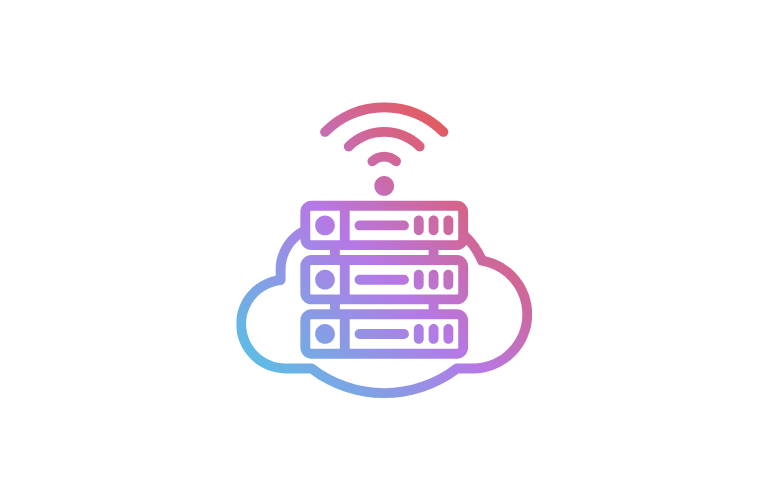Managing a server requires constant attention to ensure it runs efficiently and securely. Automating Server Maintenance tasks can save time, reduce errors, and provide peace of mind. This article explores the importance of server maintenance, key areas to monitor regularly, and how to automate these tasks using cron jobs on Ubuntu.
Table of Contents
Why Server Maintenance is Crucial
A well-maintained server ensures optimal performance, reduces downtime, and minimizes vulnerabilities. Ignoring server upkeep can lead to slow response times, data loss, or even security breaches. With an automated approach, you can stay ahead of potential issues and focus on core tasks.
If you are starting with your server so setup LAMP stack on your server for hosting website.
Key Areas to Check and Maintain Regularly
1. System Updates
Keeping your operating system and software up-to-date is vital for security and performance. Updates often include patches for vulnerabilities and performance improvements.
2. Disk Space Management
Low disk space can halt critical processes, leading to downtime. Regularly monitoring and cleaning unused files ensures smooth operation.
3. Memory Usage
High memory consumption can slow your server. Monitoring memory usage helps identify and address resource-hungry processes.
4. Service Status
Critical services like web servers, databases, and firewalls must always be running. Regular checks can identify and restart failed services.
5. Security Monitoring
Tracking unauthorized access attempts, monitoring open ports, and checking for modified system files are essential for preventing breaches.
6. Backups
Regular backups protect your data from accidental deletion or corruption. Implementing a retention policy ensures efficient storage usage.
All these things is basic but if we have multiple servers so it is good to do Automating Server Maintenance with ubuntu crons to reduce our extra time and effort.
Check must do server maintenance task.
Tasks You Can Do For Automating Server Maintenance
Ubuntu’s cron job utility allows you to schedule commands or scripts at specific intervals. Below are maintenance tasks you can automate:
1. System Updates
Purpose: Automate daily updates to keep the system secure.
Cron Job Command:
# Run updates daily at 2 AM
0 2 * * * /usr/local/bin/server_maintenance.sh check_updatesFunction Code (check_updates):
check_updates() {
echo "$(date): Checking for system updates..." >> /var/log/server_maintenance.log
apt update && apt -y upgrade
echo "$(date): System updates completed." >> /var/log/server_maintenance.log
}2. Disk Space Management
Purpose: Monitor disk space and clear old logs when usage exceeds a threshold.
Cron Job Command:
# Check disk space every 6 hours
0 */6 * * * /usr/local/bin/server_maintenance.sh check_disk_spaceFunction Code (check_disk_space):
check_disk_space() {
threshold=80
usage=$(df -h / | grep '/' | awk '{print $5}' | sed 's/%//')
if [ "$usage" -ge "$threshold" ]; then
echo "$(date): Disk usage at $usage%. Clearing old logs..." >> /var/log/server_maintenance.log
find /var/log -type f -name "*.log" -mtime +7 -exec rm -f {} \;
echo "$(date): Old logs cleared to free up space." >> /var/log/server_maintenance.log
else
echo "$(date): Disk usage at $usage%. No action needed." >> /var/log/server_maintenance.log
fi
}3. Memory Monitoring
Purpose: Monitor memory usage and free up cache if needed.
Cron Job Command:
# Check memory every 4 hours
0 */4 * * * /usr/local/bin/server_maintenance.sh check_memoryFunction Code (check_memory):
check_memory() {
echo "$(date): Checking memory usage..." >> /var/log/server_maintenance.log
free -m >> /var/log/server_maintenance.log
sync; echo 1 > /proc/sys/vm/drop_caches
echo "$(date): Memory cache cleared." >> /var/log/server_maintenance.log
}4. Service Management
Purpose: Ensure critical services like Nginx, MySQL, and SSH are always running.
Cron Job Command:
# Check services every hour
0 * * * * /usr/local/bin/server_maintenance.sh check_servicesFunction Code (check_services):
check_services() {
services=("nginx" "mysql" "ssh")
for service in "${services[@]}"; do
if ! systemctl is-active --quiet $service; then
echo "$(date): $service is not running. Attempting to restart..." >> /var/log/server_maintenance.log
systemctl restart $service
if systemctl is-active --quiet $service; then
echo "$(date): $service restarted successfully." >> /var/log/server_maintenance.log
else
echo "$(date): Failed to restart $service. Manual intervention required." >> /var/log/server_maintenance.log
fi
else
echo "$(date): $service is running normally." >> /var/log/server_maintenance.log
fi
done
}5. Backup Management
Purpose: Perform daily backups and rotate them weekly to manage storage. Also, do not store backup in the server store in Google Drive or any other location.
Cron Job Command:
# Perform backups daily at 1 AM
0 1 * * * /usr/local/bin/server_maintenance.sh perform_backupFunction Code (perform_backup):
perform_backup() {
backup_dir="/var/backups/$(date +%F)"
mkdir -p "$backup_dir"
echo "$(date): Starting backup to $backup_dir..." >> /var/log/server_maintenance.log
rsync -av --delete /important_data "$backup_dir"
echo "$(date): Backup completed successfully." >> /var/log/server_maintenance.log
# Upload the backup to Google Drive
remote_dir="gdrive:/backups/$(date +%F)" # Google Drive directory
rclone copy "$backup_dir" "$remote_dir" --log-file=/var/log/server_maintenance.log --log-level INFO
echo "$(date): Backup uploaded to Google Drive." >> /var/log/server_maintenance.log
# Remove backups older than 7 days locally
find /var/backups -type d -mtime +7 -exec rm -rf {} \;
echo "$(date): Old backups cleared." >> /var/log/server_maintenance.log
}6. Security Audits
Purpose: Run rootkit scans and monthly security audits for vulnerabilities.
Cron Job Commands:
# Rootkit scan weekly
0 0 * * 0 rkhunter --check >> /var/log/rkhunter.log 2>&1
# Monthly system audit
0 0 1 * * lynis audit system >> /var/log/lynis-audit.log 2>&1Step-by-Step Guide for Implementation
Step by step all processes that how you can implement Automating Server Maintenance in your Ubuntu server.
Step 1: Create the Script File
1. Create the script file to house all functions:
sudo nano /usr/local/bin/server_maintenance.sh2. Add the following script with all functions defined above:
#!/bin/bash
check_updates() { ... } # Add the function content here.
check_disk_space() { ... }
check_memory() { ... }
check_services() { ... }
perform_backup() { ... }
# Parse the command-line argument
case $1 in
check_updates) check_updates ;;
check_disk_space) check_disk_space ;;
check_memory) check_memory ;;
check_services) check_services ;;
perform_backup) perform_backup ;;
*) echo "Usage: $0 {check_updates|check_disk_space|check_memory|check_services|perform_backup}" ;;
esac3. Save and close the file and install the required dependencies.
Install and Configure rclone for Google Drive Upload
sudo apt install rclone # On Debian/Ubuntu
rclone config # Configure rclone to connect to Google Drive4. Make the script executable:
chmod +x /usr/local/bin/server_maintenance.shStep 2: Configure Cron Jobs
Edit the crontab file to schedule the tasks:
sudo crontab -eAdd the cron job commands as outlined earlier.
Step 3: Testing and Logging
1. Run Functions Manually:
Test each function by running the script with the respective argument:
/usr/local/bin/server_maintenance.sh check_updates2. Review Logs:
Check /var/log/server_maintenance.log for detailed logs.
Step 4: Notifications and Alerts
Install email tools for notifications:
sudo apt install mailutilsUpdate the check_services function to send email alerts when restarting a service.
Conclusion
Automating server maintenance with cron jobs ensures your system remains secure and operational. By integrating notifications and robust logging, you enhance visibility and control over your server’s health. Follow this guide to implement and monitor these tasks effectively.
Frequently Asked Questions (FAQs)
1. What are cron jobs and how do they work in Ubuntu?
Cron jobs are scheduled tasks in Unix-like operating systems, including Ubuntu, that automate repetitive tasks at specified intervals. They are defined in a crontab file, which contains the commands to be executed and their schedule.
2. How can I set up a cron job for Automating Server Maintenance?
To set up a cron job for server maintenance, you can edit the crontab file using the command sudo crontab -e and add your desired commands with their respective schedules.
3. What types of tasks can I automate with cron jobs?
You can automate various tasks such as system updates, disk space monitoring, memory usage checks, service management, backups, and security audits using cron jobs.
4. How do I ensure my server is secure with automated tasks?
Implement cron jobs that perform regular security audits, check for unauthorized access attempts, and run rootkit scans to maintain your server’s security.
5. Can I receive notifications if a cron job fails?
Yes, you can configure your scripts to send email notifications when certain conditions are met or when errors occur during the execution of cron jobs.
6. Is it possible to back up data to cloud storage using cron jobs?
Yes, you can automate backups to cloud storage services like Google Drive by including the necessary commands in your backup scripts scheduled with cron jobs.




